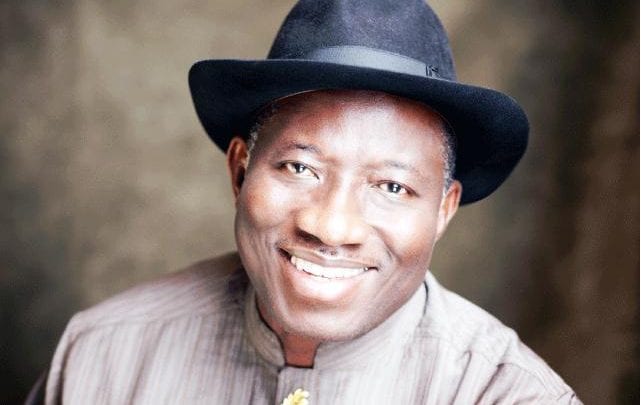
The long-running debate over whether former President Goodluck Jonathan can legally return to the presidential race took a dramatic turn last week after a Federal High Court in Yenagoa ruled that he cannot be barred from contesting on the basis of Section 137(3) of the 1999 Constitution (as amended).
Justice Isa H. Dashen, who delivered judgment on May 27, 2022, held that the constitutional amendment which limits the number of times a person can be sworn in as president does not apply retroactively to Jonathan, whose previous oaths of office predated the 2018 commencement of the provision.
Background to the Case
The suit was instituted by two self-identified members of the All Progressives Congress (APC), Andy Solomon and Ibidiye Abraham, who asked the court to declare Jonathan ineligible to contest in future elections. They joined Jonathan as First Defendant, while the APC and the Independent National Electoral Commission (INEC) were listed as Second and Third Defendants.
Despite being duly served, both APC and INEC failed to enter appearances or file responses. Justice Dashen noted this omission, remarking that it amounted to tacit acceptance of the case made by Jonathan.
Quoting legal precedents, the judge observed:
“As earlier stated, both 2nd and 3rd Defendants (APC and INEC) did not file any processes in response or reaction thereto despite service of the Originating process on them.
“In the locus classicus case of OYEYIPO VS OYINLOYE (1987) I NWLR (Part 50) 350, the Apex Court held thus: ‘A Defendant who fails to enter appearance or file Counter-Affidavit in response to the averments in support of the Originating Summons would be presumed to have Demurred and admitted the facts deposed to in the Affidavit filed in support Originating Summons.”
“See the recent case of FUTMINA & ORS VS OLUTAYO (2017) LPELR-43827 (SC) and CHEVRON (NIG) LTD VS IMO STATE HOUSE OF ASSEMBLY AND ORS (2016) LPELR-41563 (CA) where the Appellate Courts confirmed the above position.”
Jonathan’s Defence
In his Counter-Affidavit, Jonathan argued that he had only been “elected” into office once—in 2011—and that his swearing-in in 2010 was merely to complete the unexpired tenure of the late President Umaru Musa Yar’Adua.
He cited the Court of Appeal decision in CYRIACUS NJOKU VS GOODLUCK EBELE JONATHAN (2015) LPELR-24496, which held that his 2010 oath of office could not be counted as an election under Section 137(1)(b) of the Constitution.
He further stressed that Section 137(3) came into force on June 7, 2018—three years after he left office—and therefore could not retroactively strip him of his constitutional right to contest.
Justice Dashen’s Findings
In a detailed review of the submissions, Justice Dashen held that the timing of Jonathan’s previous oaths of office and the commencement of the constitutional amendment were decisive.
The court stated:
“Having carefully considered the arguments of the parties, I am of the view that the determination of the application or otherwise of the provisions of sub-section (3) of Section 137 of the Constitution to the 1st Defendant lies on the juxtaposition of the date when the 1st Defendant claims to have acquired his present right to be sworn-in as President and the date on which sub-section (3) of Section 137 of the Constitution took effect.”
“The starting point is to acknowledge the fact that sub-section (3) of Section 137 of the Constitution was not originally part of the corpus of the Constitution. Sub-section (3) of Section 137 of the Constitution was introduced by the 4th Alteration to the said Constitution.”
“Although the 1st Defendant attached the Official Gazette wherein this alteration was published as Exhibit EKO I (i.e. Exhibit) to his Counter-Affidavit, this Court is empowered to take judicial notice of the law by virtue of the provisions of Section 122(2)(a) of the Evidence Act 2011. A cursory look at Exhibit EKO1 (i.e. Exhibit) will reveal that the 4th Alteration introduced a restriction with regard to the number of times a person, sworn-in as President of the Federal Republic of Nigeria to complete the term for which another person was elected, can be sworn-in as President after completing the remainder of the said term.”
“Sub-section (3) of Section 137 of the Constitution states that any person who was so sworn-in shall, after completing the term of such other person, be eligible to be only elected to the office of President for a single term.”
“Further scrutiny of Exhibit EKOI (i.e. Exhibit) also reveals that the 4th Alteration was enacted by the National Assembly in 2017; however, the ‘commencement’ date for same was expressly set for ‘7th Day of June, 2018’.”
“Having the benefit of reading the Official Gazette (i.e. Exhibit ÉKO1), I therefore have no difficulty in holding that provisions of subsection (3) of Section 137 of the Constitution took effect from 7th June, 2018. And I so hold.”
Political Implications
The ruling effectively removed a major legal barrier that critics had cited to prevent Jonathan from seeking a return to Aso Rock. Already, some leaders within the Peoples Democratic Party (PDP) are reported to be encouraging him to contest in 2027, though Jonathan himself has not made any public declaration.
With the Federal High Court’s decision in his favour, the former president now stands legally eligible to re-enter the presidential race, setting the stage for what could become one of the most intriguing contests in Nigeria’s political history.
